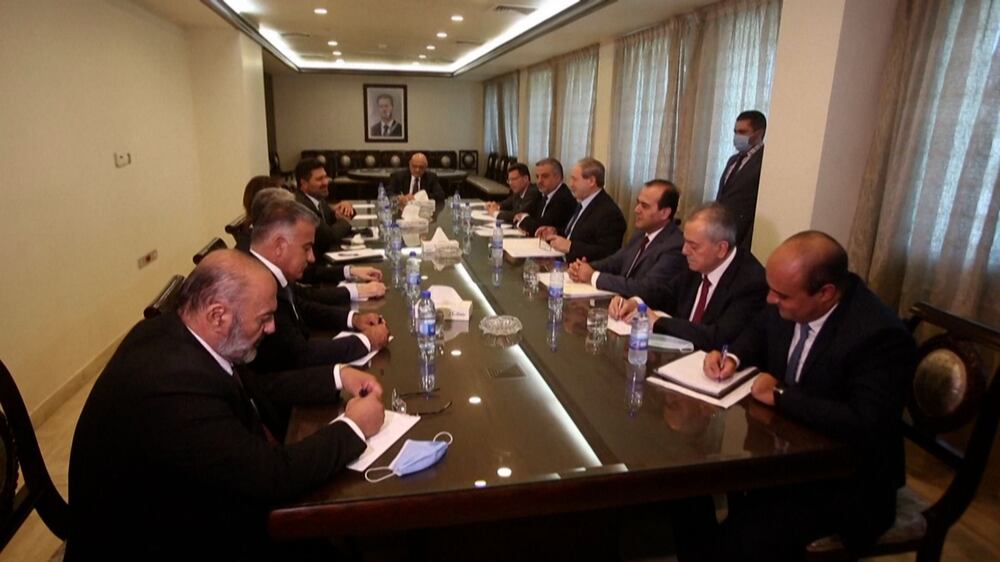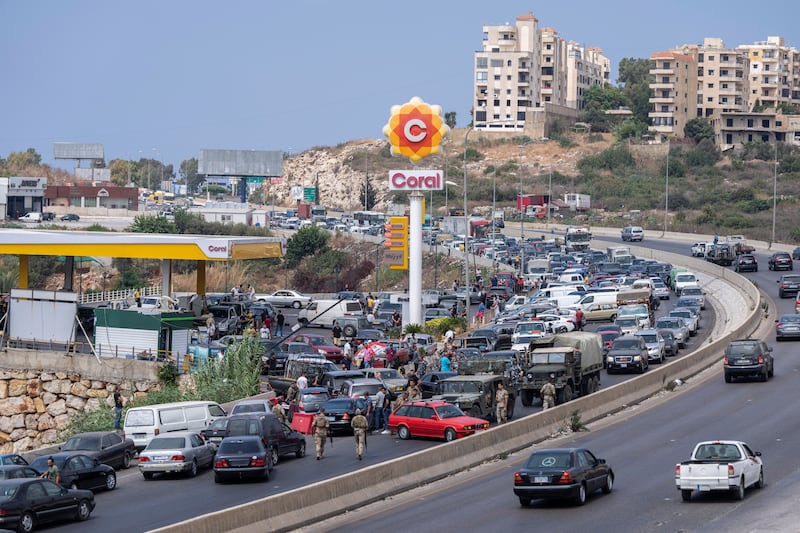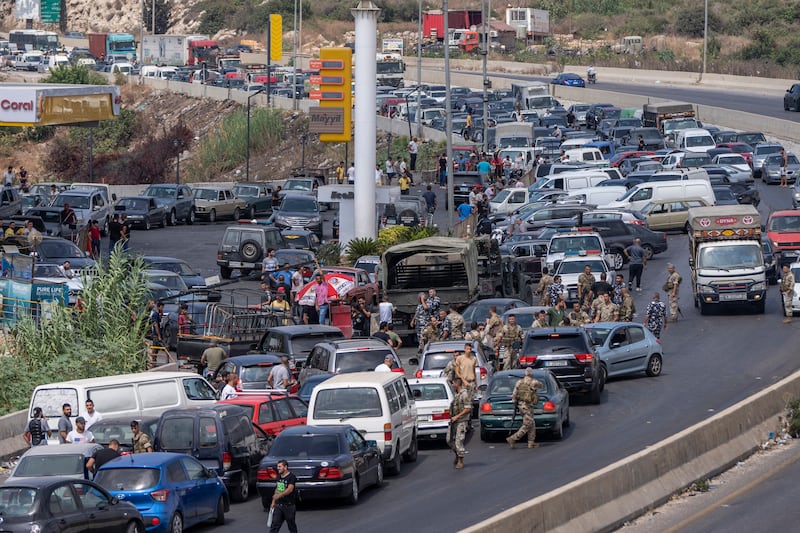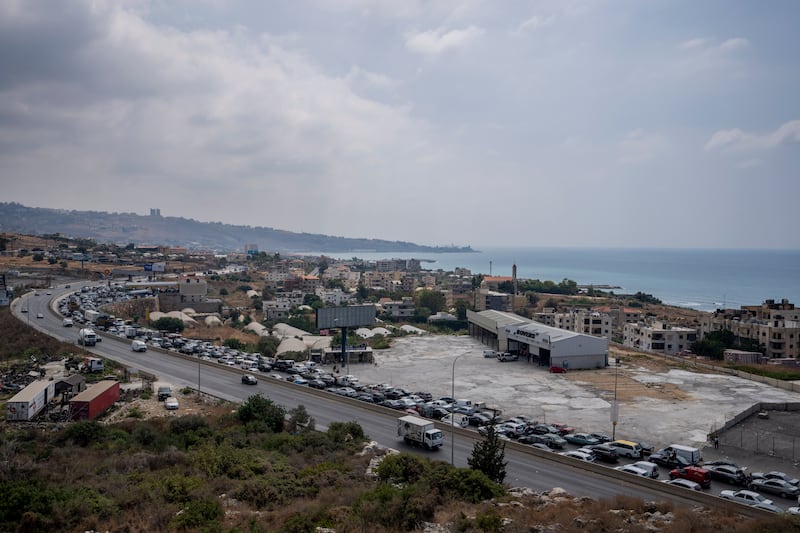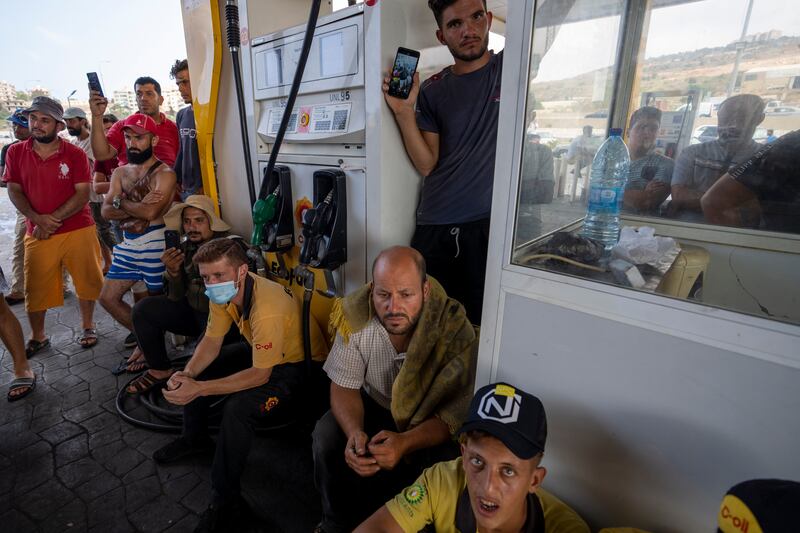Jordan, Egypt, Syria and Lebanon's energy ministers will meet in Amman on Wednesday after Syria agreed to allow gas and electricity to pass through its territory to help Lebanon tackle its energy crisis, state media said.
A delegation led by Lebanon's caretaker deputy prime minister Zeina Akar met Syria's Foreign Minister Faisal Mekdad and Oil Minister Bassam Tomeh In Damascus on Saturday to finalise the details.
Lebanon hopes to strike a deal to import gas from Egypt and electricity from Jordan using Syrian infrastructure. Beirut wants Washington's blessing, despite the US imposing sanctions on the Syrian regime.
Fuel shortages and power cuts caused by Lebanon's economic collapse have paralysed businesses, as well as vital services such as hospitals.
Analysts said such a deal could be a step to opening the door for Syria's reintegration into the international community over a decade after the regime's bloody crackdown on protests escalated into a devastating civil war.
Syria is ready to help Lebanon with "transit for Egyptian gas and Jordanian electricity via Syrian territory", said Nasri Khoury, secretary general of the Lebanese-Syrian Higher Council.
"The parties agreed to set up a joint team to track technical details," he said.
A meeting is to be held next week in Jordan with representatives from Beirut, Amman, Damascus and Cairo to discuss technical and financial issues and to decide on a work plan and timetable, Lebanese Energy Minister Raymond Ghajar said.
Work will be needed to get Syria's war-ravaged infrastructure up to the task of transferring the energy.
Lebanon's presidency has previously spoken of US-led talks with the World Bank to finance its imports of electricity and fuel.
Lebanon has maintained diplomatic ties with Syria but adopted a policy of dissociation from the Syrian conflict after it started in 2011, putting a dampener on official dealings.
Lebanon's taxi drivers feel the effects of fuel crisis
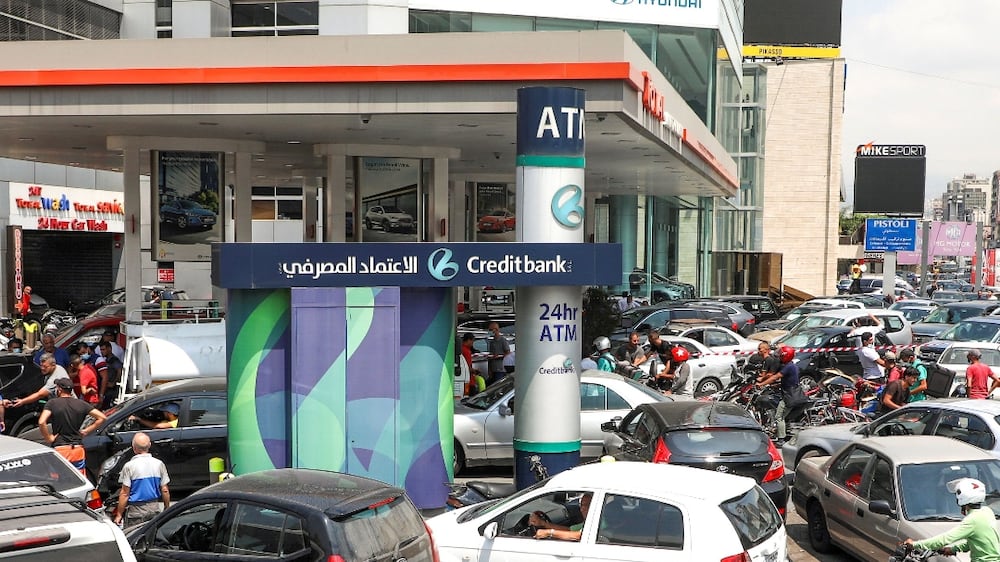
Lebanese security officials and politicians have made several visits to Syria in recent years, but almost exclusively in a personal capacity or on behalf of political parties that support the government of President Bashar Al Assad.
They include representatives of the Iran-backed Hezbollah movement, which has been fighting alongside regime forces since the early stages of the war.
The Lebanese presidency said last month that the US agreed to help Lebanon secure electricity and natural gas from Jordan and Egypt through Syrian territory.
This implies the US is willing to waive Western sanctions that prohibit official transactions with the Syrian government and that hampered previous attempts by Lebanon to bring in gas from Egypt.
That announcement followed a statement from Hezbollah that Iran would begin sending fuel to Lebanon.
On Friday, shipping website Tanker Trackers said the first two ships had set off.
Lebanon, a country of more than six million people, is suffering from an economic crisis that the World Bank has described as one of the worst in the world in modern times.
The central bank is struggling to pay for basic imports, including fuel, which has caused shortages and power cuts that now last up to 22 hours a day.
